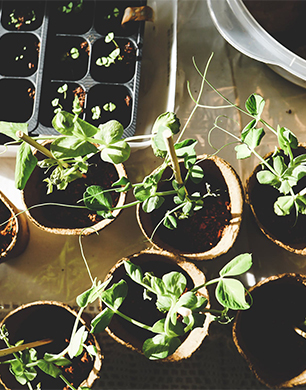
Photo Credit: www.pexels.com
Over the course of lockdown, interest in gardening skyrocketed. With time on their hands and green spaces to attend to, Brits in their millions created gardens of exquisite beauty – or, at the very least, found time to mow the lawn more often.
Gardening didn’t just confer the practical benefit of making the space more pleasant to inhabit. It also bolstered mental health at a time when pressure and stress were skyrocketing. According to Mind, the mental health charity, ‘ecotherapy’ confers a number of benefits. They recommend growing and picking food, as well as tending to plants in general, as a great way to experience these benefits.
Deborah Wood, the director of Premier Polytunnels, is eager to agree: “We have a number of customers, including mental health and gardening charities, NHS trusts, care homes, day centres, schools, and prisons, that offer gardening activities as part of their horticultural therapy sessions, encouraging health, wellbeing and rehabilitation.”
Physical
As anyone who attempted gardening for the first time in 2020 will attest, it’s gruelling work. You’re walking, you’re bending, you’re lifting, you’re chopping. It all adds up to a sizeable caloric deficit. Moreover, you’re developing muscles in your lower back and shoulders which might have atrophied during sedentary office hours, which will help to prevent injury in the future.
Mental
The mental-health benefits of gardening are widely reported; the only questions concerns their extent. Any form of physical exercise will confer mental health benefits, too. But also, there are more direct benefits. Gardens protect us from the noise and stress of everyday life, especially if we’re wise enough to leave our phones indoors while we’re at it.
“Gardening has proven to lower stress levels, lower the risk of dementia, and reduce feelings of anxiety. Seeing a garden that you have tended and nurtured thrive is definitely rewarding and gives you a sense of pride,” says Wood.
Where dementia is concerned, gardening not only lowers risk, but allows sufferers to manage their symptoms through planning, preparation and careful maintenance.
Spiritual
It’s easy to dismiss spiritual concerns as cloudy, vague, or outright magical. But there’s something to be said about the value of caring for something that isn’t yourself – even if it is just a tomato plant. While you’re doing this, you might not be thinking of your own problems or those of the rest of the world.
Gardeners must learn to accept that life is chaotic, and that they can’t always perfectly control the plants to which they’re tending. There’s no such thing as a perfect garden – and the most meticulously-tended of them require constant attention. This epiphany can then be applied to other areas of life, driving off perfectionism while elevating self-worth.

